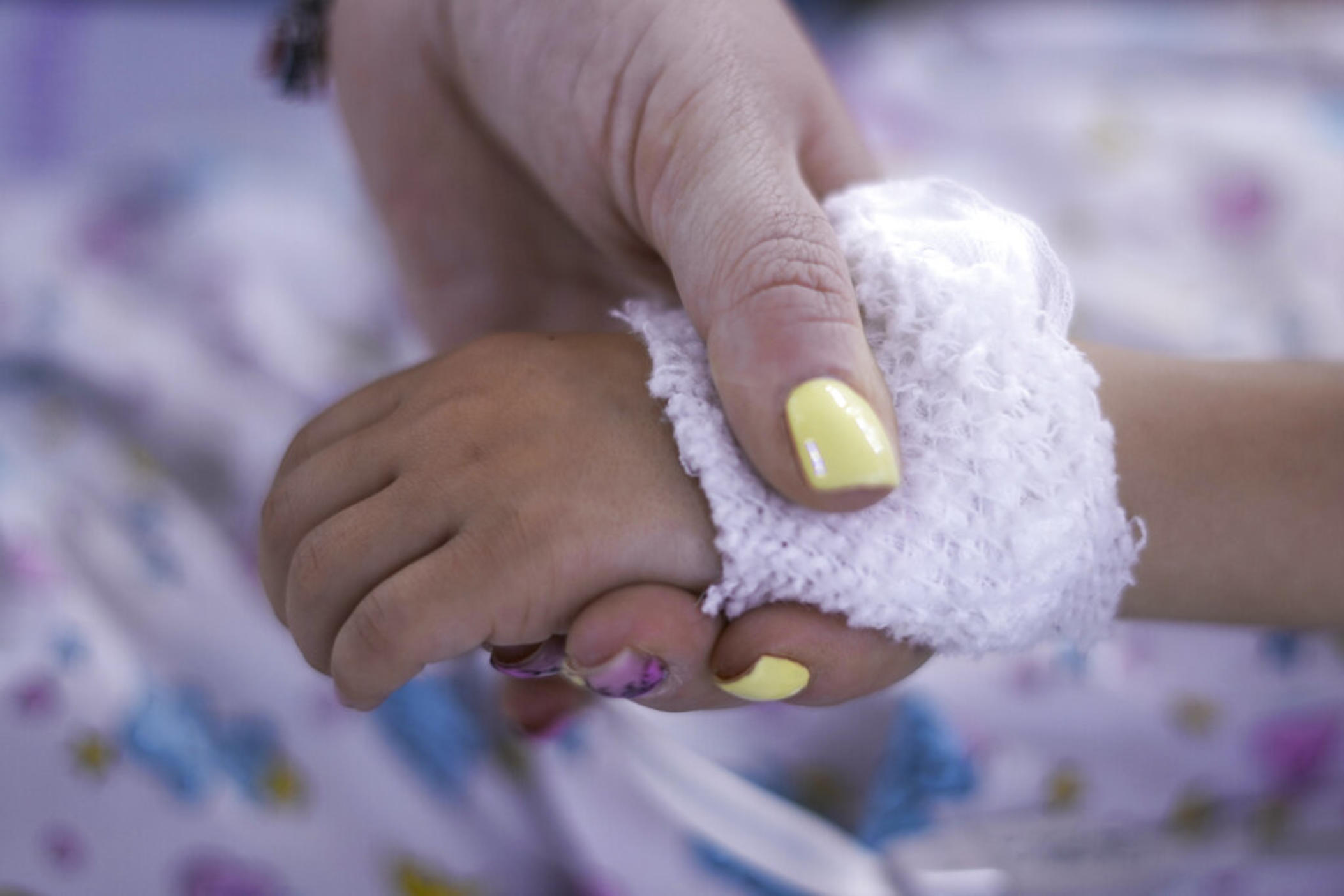Section Branding
Header Content
Researchers in Atlanta find cardiac stem cells can treat heart defects in newborn babies
Primary Content
LISTEN: Children’s Healthcare of Atlanta in partnership with Emory and Georgia Tech is conducting a study that uses newborn babies’ own stem cells to help heal congenital heart defects. GPB’s Ellen Eldridge has more.
——
Most parents are frightened after an ultrasound reveals that a portion of their baby's heart is missing.
Before the 1980s, the poor prognosis of congenital heart defects complicated the decision to carry the pregnancy to term. But today, doctors can tell if a fetal heart is growing properly in the womb. And ongoing research from Children’s Healthcare of Atlanta, Georgia Institute of Technology and Emory University School of Medicine seeks to improve survival rates of children with congenital heart defects.
Hypoplastic left heart syndrome — or HLHS — is one of the heart defects they're studying. With HLHS, the left side of the heart hasn't developed enough to pump its share of the blood to the body, so the right side of the heart does the job of both.
The Centers for Disease Control and Prevention estimates that about 1 out of every 3,841 babies born in the United States each year is born with hypoplastic left heart syndrome. Researchers believe the likelihood of a newborn dying from HLHS is quite high considering its low incidence.
A fetal diagnosis of HLHS means a newborn will almost certainly die within the first two weeks — if not days — of life. Expected symptoms include breathing problems including rapid, shallow breaths. Sometimes, fingers and toes turn blue because there isn't enough oxygen in poorly circulated blood.
Michael Davis leads research for the ongoing joint trial funded by the Marcus Foundation called Autologous Cardiac Stem Cell Injection in Patients With Hypoplastic Left Heart Syndrome: An open label pilot study (CHILD for short). CHILD is one of three stem cell clinical trials for HLHS in the country using cardiac stem cells, which are the base-model for virtually every cell in the human body.
Stem cell trials and treatments remain highly controversial. Opponents of this research, including groups such as antiabortion advocates and the Catholic Church, want it to be severely restricted or banned. But proponents, including many medical researchers and patient advocacy groups, have claimed that the embryos (often from fertility or abortion clinics) would be discarded and that stem cell research could save countless lives.
Davis said he believes the controversy refers to embryonic stem cell therapy, which is not what CHILD's trial involves. CHILD uses autologous cell therapy.
"I think the technology is now advanced to the point where we can create embryonic-like stem cells from from people's skin tissue," he said. "That's not to say that I don't speak for everybody in terms of ethical concerns, but for this particular study, this is, you know, an autologous cell from an already existing person."
A total of 28 babies enrolled in CHILD have a nonfunctioning left side of their heart.
Within the first week of life, surgeons rerouted their blood supplies so that blood no longer goes to the left ventricle, which is the one that doesn't work.
"We isolate stem cells when they're born, from that first surgery," Davis said. "When they come in for their second surgery, we inject the cells right into their right ventricle to see if we can give it some strength, boost it up and make it work a little bit better."
The trial is blinded, meaning some patients got placebo and some patients got cells.
"We don't know who is who and we don't want to know right now which is which," Davis said. "And so we're waiting. We have to wait until the last baby has received their 12-month follow up before we can unblind ourselves and see what happened."
He said they plan to complete all the 6-month visits by November, with a goal of concluding the trial early next spring.


